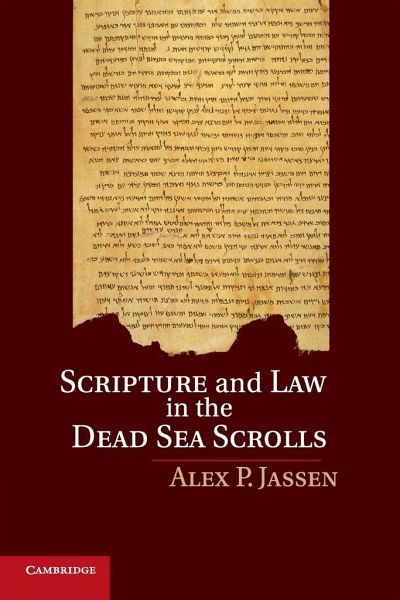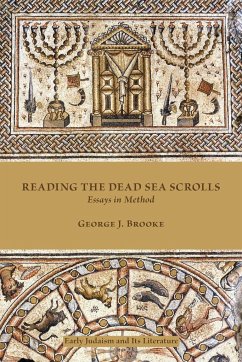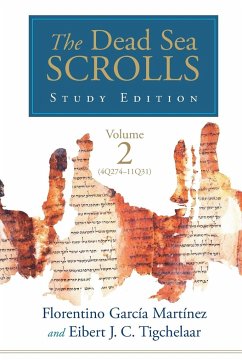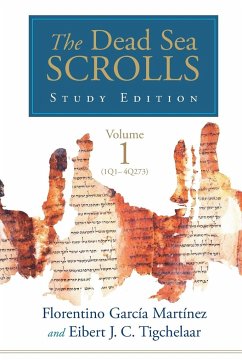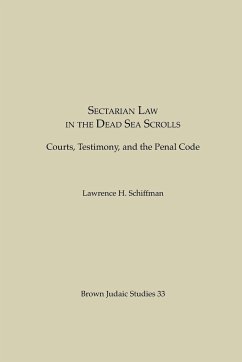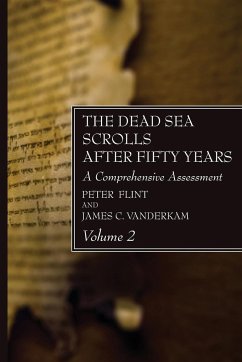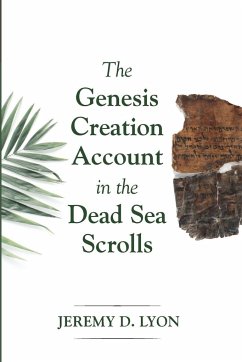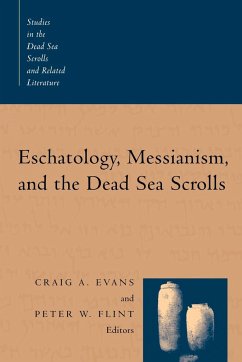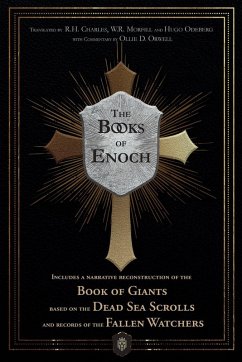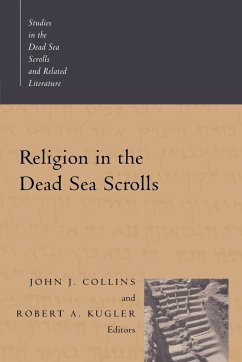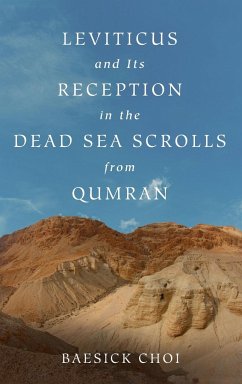Alex P. Jassen
Broschiertes Buch
Scripture and Law in the Dead Sea Scrolls
Versandkostenfrei!
Versandfertig in 1-2 Wochen
Weitere Ausgaben:

PAYBACK Punkte
17 °P sammeln!




This book examines the interpretation of biblical law in the Dead Sea Scrolls and ancient Judaism.
Alex P. Jassen is Associate Professor of Hebrew and Judaic Studies in the Skirball Department of Hebrew and Judaic Studies at New York University. He previously taught at the University of Minnesota, where he was the recipient of the university's prestigious McKnight Land-Grant Fellowship. Dr Jassen holds a B.A. in Jewish Studies and Near Eastern Languages and Civilizations from the University of Washington (2001) and a Ph.D. in Hebrew and Judaic Studies from New York University (2006). He has published widely on the Dead Sea Scrolls and ancient Judaism and is a member of the international editorial team responsible for publication of the Dead Sea Scrolls. He is the author of Mediating the Divine: Prophecy and Revelation in the Dead Sea Scrolls and Second Temple Judaism (2012), winner of the 2009 John Templeton Award for Theological Promise, as well as many articles in leading journals such as the Association for Jewish Studies Review, Biblical Interpretation, Dead Sea Discoveries, the Journal of Biblical Literature, the Journal of Jewish Studies, and Revue de Qumran. He is the co-editor of Scripture, Violence, and Textual Practice in Early Judaism and Christianity (with Ra'anan S Boustan and Calvin J. Roetzel, 2010), and co-editor-in-chief of the Journal of Ancient Judaism. He served as academic advisor for the 'Dead Sea Scrolls: Words that Changed the World' exhibit at the Science Museum of Minnesota. His work on religious violence has been recognized with a fellowship from the National Endowment for the Humanities.
Produktdetails
- Verlag: Cambridge University Press
- Seitenzahl: 322
- Erscheinungstermin: 5. April 2018
- Englisch
- Abmessung: 229mm x 152mm x 20mm
- Gewicht: 525g
- ISBN-13: 9781108469036
- ISBN-10: 1108469035
- Artikelnr.: 52525733
Herstellerkennzeichnung
Libri GmbH
Europaallee 1
36244 Bad Hersfeld
gpsr@libri.de
Für dieses Produkt wurde noch keine Bewertung abgegeben. Wir würden uns sehr freuen, wenn du die erste Bewertung schreibst!
Eine Bewertung schreiben
Eine Bewertung schreiben
Andere Kunden interessierten sich für




